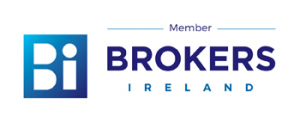In this month’s Construction Magazine, Susan sets out some crucial points to be considered when looking at life assurance and protection cover.
 I have been writing a lot about protection cover of late. This has come about due to the increase in demand from my own clients and a worldwide trend since the beginning of the seemingly never-ending global pandemic. Much of the focus has been on the “need” for cover and quantifying the amount needed. In this piece, I am covering some of the key technical points that you should pay attention to when taking out cover.
I have been writing a lot about protection cover of late. This has come about due to the increase in demand from my own clients and a worldwide trend since the beginning of the seemingly never-ending global pandemic. Much of the focus has been on the “need” for cover and quantifying the amount needed. In this piece, I am covering some of the key technical points that you should pay attention to when taking out cover.
When I talk about cover, it can mean anything from a simple term life assurance policy to an income protection policy and shareholder cover. There are some critical areas to consider before deciding on the cover you require and who your provider should be. There are also some key areas you should know about to ensure that in the event of a need to claim, you get what you think you signed up for.
POLICYHOLDER OR LIFE ASSURED?
The “policyholder” refers to the individual who proposes the purchase of the life insurance policy and pays the premium. The policyholder is the owner of the policy and may or may not be the life assured. The “life assured” is the insured person. Life assured is the one for whom the life insurance plan is purchased to cover the risk of premature death. The policyholder and life assured may be one and the same, or they may differ. They can differ depending on family or business requirements.
UNDERWRITING
Underwriters evaluate the risk involved in providing the life assurance to either an individual or a group. The underwriting process essentially aims to establish the financial need and/or medical risk. The life assurance company will seek to mitigate as much risk as possible for themselves by considering the likelihood of a pay-out on death or illness. If you are young and healthy taking out a life assurance policy, the life assurance company may not require any further information. If you are older and looking for a high level of cover, the life assurance company may decide they require medical evidence or wish to quantify the financial need for the level of cover.
There is a balance to be achieved as the different providers have slightly different requirements and thresholds. If you are not in the young and healthy category, it is worth taking advice before applying for cover. As even within the relatively small Irish market, life assurance companies differ in the way that they treat certain conditions and apply different financial limits to their underwriting process.
POLICY TERM
The term of the policy outlines the period of cover being provided. It is important that this matches your needs. It may be cheaper to have a 15-year term policy; however, if cover is required for 25 years, you may be left without cover down the line. Alternatively, you may be older going back to the market looking for cover. This could add additional expense and underwriting. This brings me to the next important point.
CONVERTIBLE TERM
This type of cover allows you to convert the cover under the policy into a new policy, running for a longer period of time, without having to undergo a medical examination or supply evidence of good health at the time of the conversion. This is an important feature that is best included in your policy in most cases.
RIDER BENEFITS
Rider benefits are additional features that come with the policy and can include things such as total and permanent disability benefit, hospital cash and waiver of premiums, among others. These rider benefits vary between providers and should be considered as part of your overall decision based on your personal needs.
If you have any concerns about your policy, you should contact your provider or your advisor to discuss.
Here to help you navigate your way to financial security.
The Milestone Advisory team are qualified financial services consultants. We specialise in helping professionals in the construction sector and related industries. Our team will work with you to review your finances, explaining your options in clear English.
No jargon – just the facts.
For further information please contact Susan O’Mara via email or phone: (01) 406 8020. Milestone Advisory DAC t/a Milestone Advisory is regulated by the Central Bank of Ireland.





